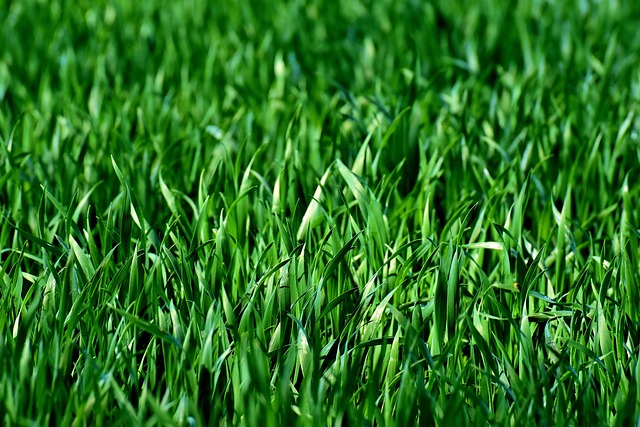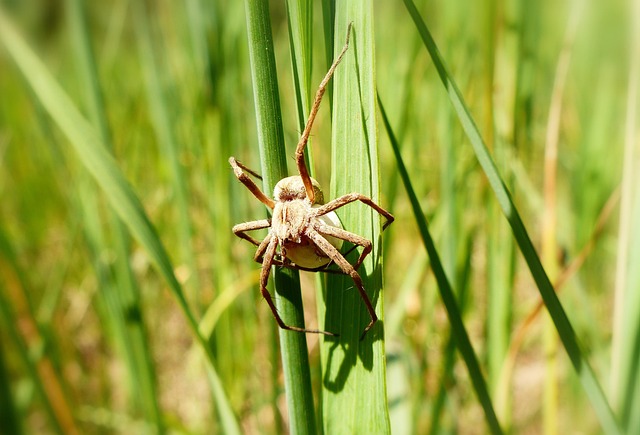Spring brings both life and challenges in Westminster with common weeds like crabgrass, dandelions, and chickweed. Effective spring weed control involves a strategic multi-step approach including aeration, pre-emergent herbicides, post-emergent chemicals, optimal mowing, watering, and fertilizing practices. Biological strategies offer sustainable, eco-friendly alternatives through beneficial microorganisms or compost incorporation to enhance plant resistance and manage weeds naturally. Professional landscapers recommend tailored solutions based on soil analysis and weed identification for significant, lasting results throughout the growing season.
In the vibrant, lush landscapes of Westminster, effective spring weed control is essential for maintaining healthy lawn aesthetics. This article explores innovative biological treatment strategies that offer a sustainable and eco-friendly approach to weed management. Discover how these methods, tailored for Westminster’s unique climate, provide long-lasting results while preserving the environmental balance. Learn about understanding spring weeds, implementing biological treatments, and achieving a pristine lawn without resorting to harsh chemicals.
- Understanding Spring Weed Control in Westminster's Lawn Landscapes
- Biological Treatment Strategies: A Sustainable Approach to Weed Management
- Implementing Effective Biological Treatments for Long-Lasting Results
Understanding Spring Weed Control in Westminster's Lawn Landscapes

In Westminster, spring is a season that brings vibrant life to lawn landscapes, but it also marks the peak season for weeds. Understanding effective Spring weed control treatments is essential for maintaining healthy and aesthetically pleasing lawns. The first step involves identifying specific weed types prevalent in the area, as different weeds require tailored strategies. Common spring weeds in Westminster include crabgrass, dandelions, and chickweed, each posing unique challenges.
Professional landscapers recommend a multi-pronged approach to Spring weed control treatments in Westminster. This often starts with thorough aeration to reduce soil compaction, allowing better water, nutrient, and oxygen penetration. Pre-emergent herbicides can be applied to prevent weed seeds from germinating, while post-emergent chemicals target already established weeds. Additionally, proper mowing practices, adequate watering, and regular fertilizing contribute to a robust lawn that outcompetes weeds naturally.
Biological Treatment Strategies: A Sustainable Approach to Weed Management

Biological treatment strategies offer a sustainable and eco-friendly approach to weed management, particularly in spring when weed control treatments in Westminster are at their peak. Instead of relying heavily on chemical herbicides, this method leverages natural processes to suppress and control weeds. By introducing beneficial microorganisms, plants can enhance their resistance to weed competition, ensuring healthier grass growth.
These strategies promote a balanced ecosystem where native flora and fauna thrive, reducing the need for synthetic interventions. In Westminster’s gardens and lawns, biological treatments can be as simple as incorporating compost or organic matter into the soil, which improves fertility and encourages competitive plant growth. Such methods not only effectively manage weeds but also contribute to overall environmental health and biodiversity.
Implementing Effective Biological Treatments for Long-Lasting Results

Implementing effective biological treatments for lawn care is a game-changer when it comes to achieving long-lasting results in Spring weed control treatments in Westminster. Unlike traditional chemical methods, biological strategies offer a sustainable and eco-friendly approach to managing weeds. By introducing beneficial microorganisms or using plant extracts, these treatments work seamlessly with nature to suppress weed growth without causing harm to your lawn or the environment.
The key to success lies in understanding your specific lawn’s needs. Professional landscapers often recommend tailored solutions based on soil analysis and weed identification. Once implemented, biological treatments take time to show results, but their effects can be significant and lasting. They not only control existing weeds but also inhibit their reproduction, ensuring a cleaner and healthier lawn throughout the growing season.
In conclusion, implementing sustainable biological treatment strategies offers an effective and eco-friendly approach to spring weed control in Westminster’s lush lawn landscapes. By harnessing natural processes, these methods provide long-lasting results, ensuring a healthier and more vibrant outdoor space. With careful consideration and consistent application, biological treatments can be a game-changer for maintaining pristine lawns throughout the season.
